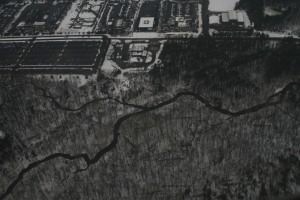
By: Cecilia Moore
A debate has arisen over whether the world, for the first time in over 10,000 years, has entered a new geological era. This purported new epoch, termed the Anthropocene, or the “age of man,” would dramatically alter the way humans view their role on this planet.
The earth has been in the Holocene since the last ice age, nearly 12,000 years ago. In order for the International Commission on Stratigraphy to officially accept that the Anthropocene is distinct from the Holocene, it will need proof that humans have altered the world to such a degree that their existence will be distinct and unmistakable in the geological record. Some scientists believe this is the case.
Dr. Jan Zalasiewicz, a prominent geologist and advocate for the Anthropocene, said in an interview with National Geographic, “To future geologists, our impact may look as sudden and profound as that of an asteroid.”
While the most visible ways in which humans have changed the earth’s landscape are not expected to leave a major footprint on the geological record, the changes in the earth’s climate and regulating systems will. For example, it is expected that if the current rate of ocean acidification continues, geologists thousands of years from now will find a thick layer of limestone on the ocean floor — proof of a mass extinction of aquatic life. Geologists may also find evidence of a mass extinction on land, comparable to that of the dinosaurs, if the biodiversity crisis accelerates. And while these are only predictions, experts feel very strongly that they will become a reality if humans continue to impact the climate in the same manner they are now.
The scientific community has come to a consensus in recognition of climate change; however, acceptance by the general populace has proven difficult. In 2010, it was reported by the National Academy of Sciences that 97 percent of scientists believe in anthropogenic climate change. In a Gallup poll released in early April, however, only 67 percent of respondents believed that scientists thought that global warming was occurring. Furthermore, 33 percent of participants responded that climate change is something that they worry about a great deal, while 43 percent stated that they only worried about it a little bit, or not at all. This gap in understanding is echoed in skepticism in Europe, as public opinion surveys in Great Britain and Germany show a decreasing percentage of people who believe that global warming is largely the result of human actions.
Paul Cruzten first coined the term Anthropocene in 2000 to describe the current period, defined by “human dominance of biological, chemical and geological processes on earth.” In the debate that has followed, Crutzen has reported his wish for the introduction of the Anthropocene to advance knowledge on the subject of climate change. “What I hope,” Cruzten has said, “is that the term ‘Anthropocene’ will be a warning to the world.” And a warning is needed, since there is a substantial amount of doubt and unfamiliarity on the subject.
The United States may be moving in right direction to try and decrease this discrepancy in knowledge between the experts and the general populace. New science education standards developed by California, and in conjunction with half of the other states, were released this week. The standards would require schools to incorporate climate change into the science curriculum as a “core concept… with a focus on the relationship between that change and human activity.” Hopefully this new outlook will be adopted across the country in the coming years, so that the United States can groom a more informed generation of citizens who will be prepared to take on the environmental issues looming ahead. This change must come sooner, rather than later, so that the geological record left by humanity is not one of mass extinctions, but one of a continuance of the stability of the Holocene.

